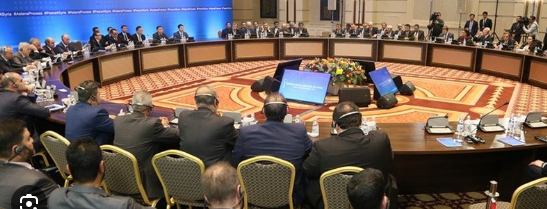剧本角色

Mr. Liu China
女,0岁
这个角色非常的神秘,他的简介遗失在星辰大海~

Ms. Thompson USA
女,0岁
这个角色非常的神秘,他的简介遗失在星辰大海~

Mr. Oliveira Brazil
男,0岁
这个角色非常的神秘,他的简介遗失在星辰大海~

Mr. Yamamoto Japan
男,0岁
这个角色非常的神秘,他的简介遗失在星辰大海~

Ms. Carter UK
女,0岁
这个角色非常的神秘,他的简介遗失在星辰大海~

Ms. Singh India
男,0岁
这个角色非常的神秘,他的简介遗失在星辰大海~

选角
1. Ms. Thompson - 代表 USA
2. Mr. Liu - 代表 China
3. Mr. Oliveira - 代表 Brazil
4. Mr. Yamamoto - 代表 Japan
5. Ms. Carter - 代表 UK
6. Ms. Singh - 代表 India
Ms. Thompson USA: [清清嗓子] Distinguished colleagues, the current state of global trade is precarious, largely due to unfair practices that undermine economic stability. The People's Republic of China, with its alleged currency manipulation and aggressive trade tactics, poses a significant threat to equitable economic engagement. We cannot turn a blind eye to actions that destabilize not only regional markets but global economies.
Mr. Liu China: [稳定输出] Ms. Thompson, while I appreciate your opening remarks, let us not forget the United States' own trade policies that favor protectionism and create barriers for developing economies. Your administration's tariffs and sanctions do more harm than good, suffocating growth and innovation worldwide. If we are to discuss fairness, the U.S. must reevaluate its approach to international trade.
Mr. Oliveira Brazil: [努力加入话题] With all due respect, this rhetoric does little to advance our discussions. The focus should not solely be on China or the United States but on the larger systemic issues affecting global trade. The actions of both countries have led to significant instability in emerging markets, particularly in Latin America, where U.S. policies often disregard local sovereignty in favor of economic dominance.
Mr. Yamamoto Japan: [默默输出] And might I remind the assembly that Japan, while committed to environmental stewardship, faces scrutiny over our nuclear waste management practices. The decision to deposit waste has raised legitimate concerns among our neighboring countries. If we are to engage in a constructive dialogue, it is crucial that we all acknowledge our shortcomings and strive for improvement in our practices.
Ms. Carter UK: [暗讽] Japan's concerns about environmental issues are valid, yet it's rather hypocritical coming from a country that prioritizes economic interests over ecological integrity. The United Kingdom, despite its own challenges, is actively working to address the climate crisis and uphold international laws regarding poverty levels. Meanwhile, Brazil's deforestation policies are undermining global efforts to combat climate change.
Ms. Singh India: [加入战斗] The U.K. should not cast stones from a glass house! You have failed to adequately address poverty within your own borders, leading to increasing inequality. While we strive to champion human rights in India, we are often met with international scrutiny that overlooks our progress and focuses on our flaws. If we are to create a viable partnership, we need to engage in meaningful discourse rather than mere accusations.
Mr. Liu China: [坚定] Indeed, it is imperative that we move past accusations and focus on collaborative solutions. However, I must point out the irony in India's stance on human rights. Your government has faced significant criticism regarding the treatment of marginalized communities and dissenting voices. How can India advocate for a united front in trade when such disparities exist domestically?
Ms. Thompson USA: [阴阳怪气] It's fascinating to see how quickly the discussion turns to accusations. Let's focus on the facts: the U.S. is committed to promoting democracy and freedom of expression worldwide. Unlike other nations, we believe in transparency and accountability. However, the implications of China's expanding Belt and Road Initiative cannot be ignored. It is seen as a means to exert political influence while compromising the sovereignty of participating nations.
Mr. Yamamoto Japan: [冷静] Ms. Thompson raises a critical point about the Belt and Road Initiative. However, I urge you to consider the broader implications of your country’s unilateral trade sanctions, which have far-reaching consequences for global economic health. It is vital that we establish a framework that respects national sovereignty while encouraging cooperative development.
Mr. Oliveira Brazil: [举手] I would like to highlight that Brazil is fully aware of the climate crisis and is working towards sustainable solutions. However, we cannot do so under the weight of unjust international scrutiny that often stems from nations with their own significant environmental footprints. We need to foster a dialogue based on mutual respect rather than baseless accusations.
